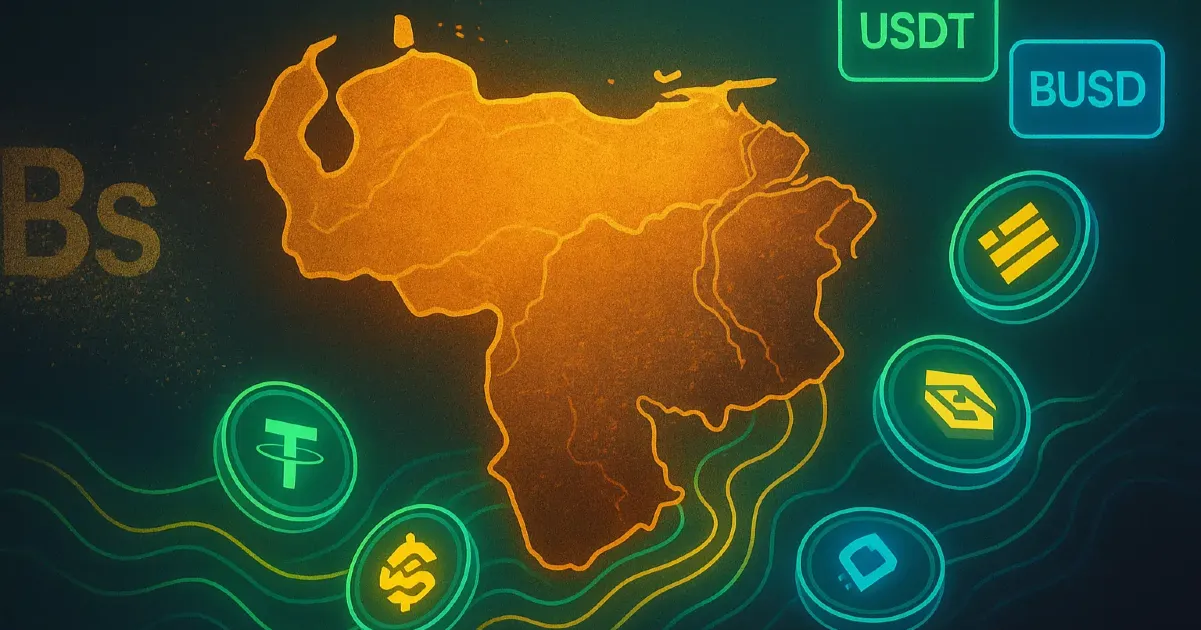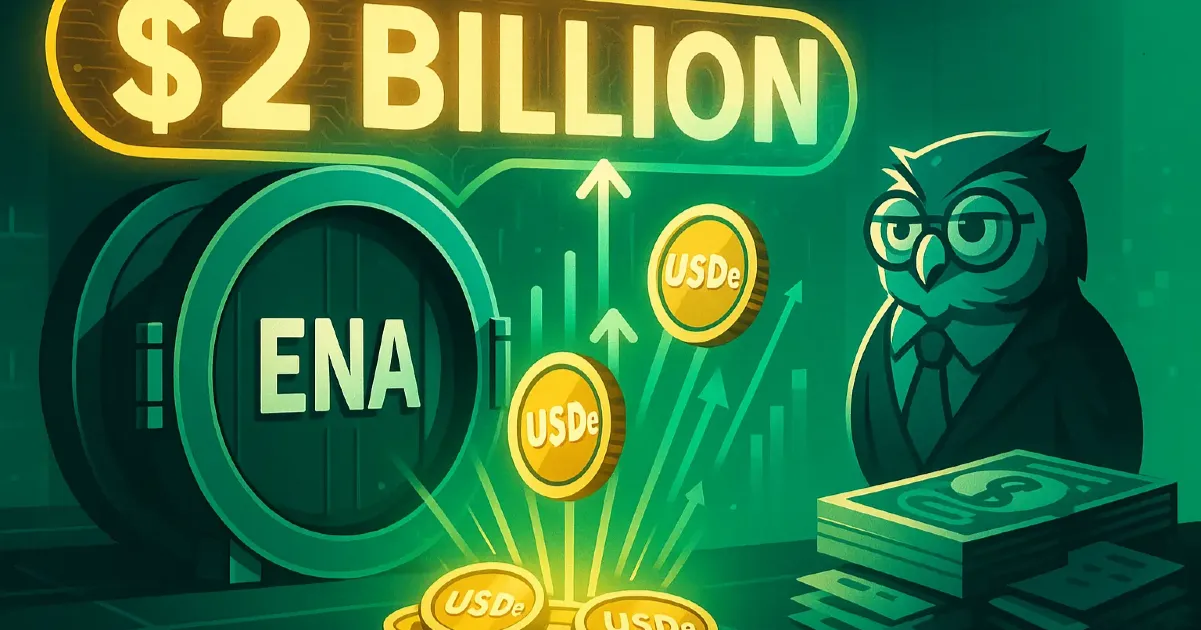USDT and Binance dollars increasingly replace Venezuela’s struggling bolivar.
Bolivar Loses Ground in Daily Life
In Venezuela, the bolivar has long been a symbol of national pride. Today, it is more a symbol of crisis. Rampant inflation and a decade of monetary instability have gutted confidence in the local currency. Supermarket shelves, restaurants, and online marketplaces increasingly quote prices not in bolivars, but in Tether USDT or Binance dollars, stablecoins that many Venezuelans now treat as everyday money.
The local adoption of stablecoins is not an abstract statistic. It’s visible in corner shops and car dealerships, in remittances and gig worker payouts. For many Venezuelans, the bolivar is no longer viable.
The Rise of Digital Dollars
For years, Venezuelans relied on physical U.S. dollars as a hedge against inflation. But cash dollars are difficult to find and cumbersome to use in smaller transactions. Crypto exchanges and peer-to-peer platforms filled the gap. Today, Binance dollars (BUSD) and USDT circulate through mobile wallets and informal P2P networks, creating a parallel digital economy that is growing faster than the bolivar-based system.
Merchants are quick to explain why. Stablecoins are easier to price, more predictable, and don’t lose value overnight. “If I sell a product in bolivars, tomorrow the profit is worthless,” one Caracas retailer told local press. “If I sell in USDT, I can plan for the month.”
Remittances Drive Adoption
Another major driver is remittances. Venezuela’s economic collapse has pushed millions to emigrate, and they now send billions home annually. In the past, these flows arrived in bolivars or in bank wires that faced delays and conversion fees. Increasingly, families receive stablecoins directly into digital wallets. Recipients then cash out to USDT or spend directly with merchants who accept it.
This remittance pipeline bypasses failing banks and unreliable intermediaries. For families struggling with inflation north of triple digits, stablecoins represent survival.
Binance and Tether Take Center Stage
Two names dominate this trend. Tether USDT remains the world’s largest stablecoin, and in Venezuela it’s become the go-to digital dollar. Parallel to that, Binance dollars maintain significant adoption thanks to the exchange’s entrenched P2P marketplace and aggressive local presence.
Together, these tokens have created a stablecoin duopoly. Competitors exist, but USDT and BUSD command trust, liquidity, and brand recognition. In practice, Venezuelan merchants often display “USDT price” tags alongside bolivar equivalents. Many mobile wallets are now preloaded with Binance integration, making the process seamless.
Everyday Use Cases
- Retail purchases: From clothing shops to bakeries, stablecoins are becoming accepted tender.
- Gig economy payouts: Venezuelans working remotely for international clients are often paid in USDT.
- Housing and rent: Landlords request monthly payments in Binance dollars or USDT to avoid depreciation.
- Medical services: Clinics and pharmacies, especially in urban areas, accept stablecoins directly.
This growing list illustrates how the bolivar’s utility is eroding.
Government Response
The Venezuelan government is in a bind. On one hand, dollarization stabilizes consumer prices and reduces chaos. On the other, it undermines sovereignty. Officials have oscillated between tolerance and regulation, occasionally trying to tax dollar transactions or promote digital bolivar initiatives. But enforcement remains weak, and citizens continue to vote with their wallets.
Some analysts argue that stablecoins may offer a better compromise than physical dollars. They still run on traceable blockchains, potentially giving regulators visibility over flows if exchanges cooperate. But the state’s limited technical and financial capacity has kept it on the sidelines.
Challenges and Limitations
Stablecoin adoption isn’t without friction. Many rural communities lack internet access or smartphones, cutting them off from digital payments. Price volatility in exchange rates can also impact conversion to bolivars for those who still need to pay local bills like utilities or taxes.
And while USDT is stable relative to the bolivar, it depends on Tether’s centralized reserves. Any disruption to Tether or Binance could ripple into Venezuela’s fragile parallel economy.
What It Means for the Venezuelan Economy
The rapid spread of stablecoin adoption is reshaping Venezuela’s financial landscape. The bolivar still exists; official wages, taxes, and some public payments are denominated in it. But real purchasing power is increasingly denominated in digital dollars. For many, Tether USDT and Binance dollars are not investments; they’re lifelines.
This grassroots shift highlights two realities: a national currency that has lost legitimacy and global digital tools that step in to fill the void. Economists warn that while this alleviates immediate pain, it risks entrenching dependency on external tokens without addressing underlying structural collapse.
Conclusion
In Venezuela, the bolivar’s decline has accelerated to the point where Tether USDT and Binance dollars are no longer fringe; they are mainstream money. For households, it means predictability in planning. For merchants, it means survival in a hyperinflated economy. For policymakers, it’s a sobering sign that the digital dollarization of Venezuela is already underway.
The story isn’t just about crypto adoption; it’s about resilience in the face of collapse. For Venezuelans, stablecoins are not speculation; they are the new reality of commerce and daily life.





